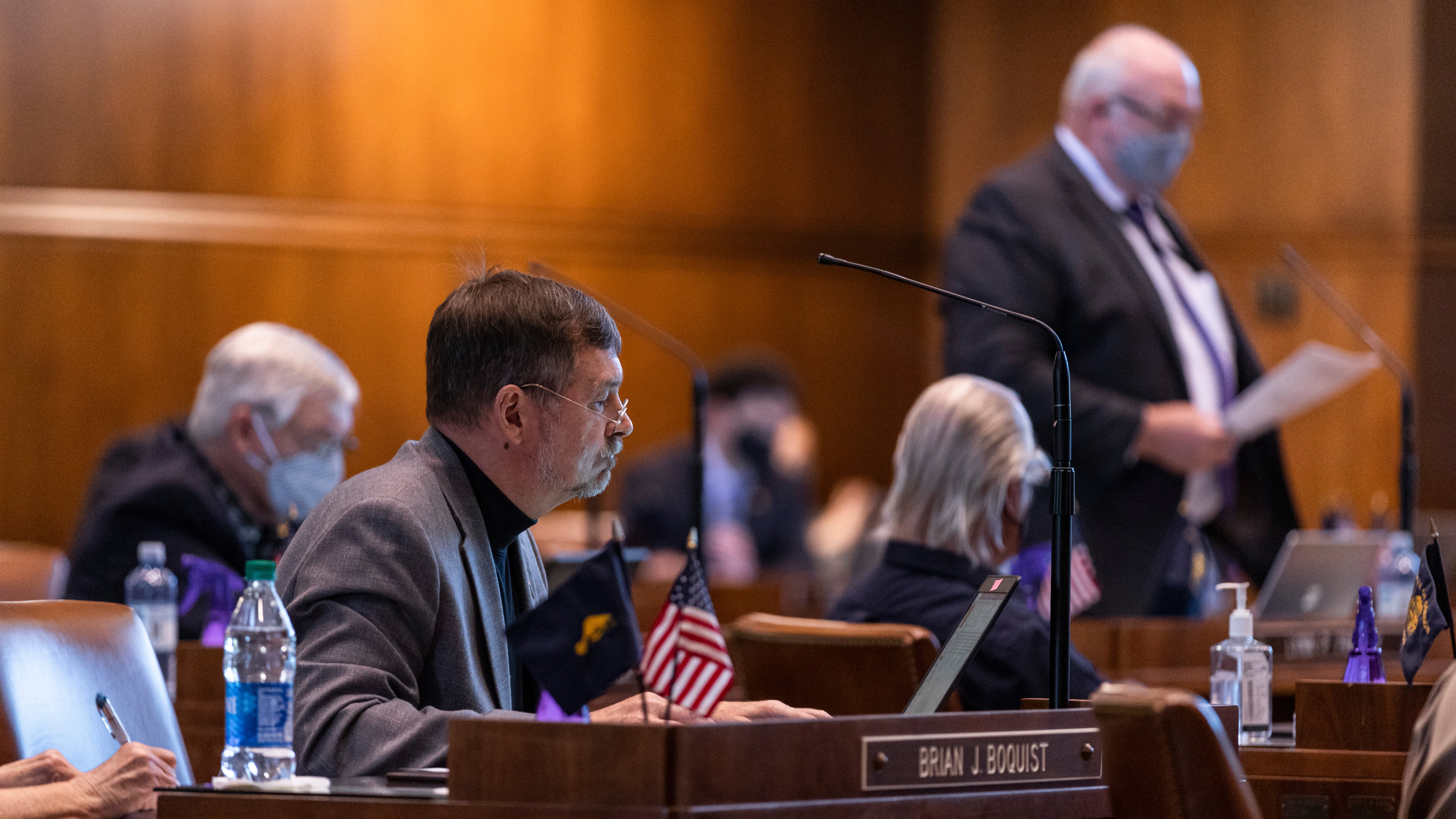The 9th U.S. Circuit Court of Appeals today rejected an appeal by Republican state senators who said an amendment to the Oregon Constitution limiting legislative walkouts violated their federal First Amendment rights.
Sens. Dennis Linthicum (R-Klamath Falls) and Brian Boquist (I-Dallas) argued that Measure 113, which voters approved in 2022 to deter legislative walkouts, stopped them from exercising their constitutional right to disagree with the Democratic majority and to do so by refusing to show up for floor votes. By failing to appear for floor votes in 2023, senators, including Linthicum and Boquist, deprived the chamber of the two-thirds attendance required for a quorum.
Measure 113 established a threshold: Lawmakers who recorded 10 or more unexcused absences would be prohibited from seeking reelection. Ambiguity in the wording of the amendment that followed from the measure’s passage led to a separate legal challenge in state court. The Oregon Supreme Court ruled in that case Feb. 1, deciding that although the language was ambiguous, the intention of the framers of the measure and voters was clear: 10 unexcused absences meant a lawmaker could not run for reelection.
Linthicum and Boquist chose a different argument in federal court. They claimed that walking out was simply an exercise of their personal right of free speech. U.S. District Judge Ann Aiken found against the senators late last year, so they appealed to the 9th Circuit Court of Appeals.
The three-judge appellate panel, which included two noted conservatives—Judge Jay Bybee, who as a U.S. assistant attorney general wrote a 2002 memo justifying torture for President George W. Bush, and Judge Daniel Bress, who clerked for U.S. Supreme Court Justice Antonin Scalia—didn’t buy that justification.
“Actions have consequences,” the three judges’ unanimous opinion states. “When those actions might be described as expressive in nature, the First Amendment sometimes protects us from the repercussions that follow. This is not one of those instances.”
Bybee, while saying he fully agreed with his colleagues (the third judge is Ronald Gould, a Clinton appointee), wrote a separate opinion explaining that in expressing their dissent, the senators were not expressing themselves in a personal capacity but rather as elected officials. “Despite their protestations, the senators are in truth asserting a legislative right,” Bybee wrote. And, he noted, just like any employee in the private or public sector, they can be held accountable for not doing their jobs: “They have to show up for work just like everyone else.”
Elizabeth Jones, the attorney who represented Linthicum and Boquist, says she is reviewing the ruling.
